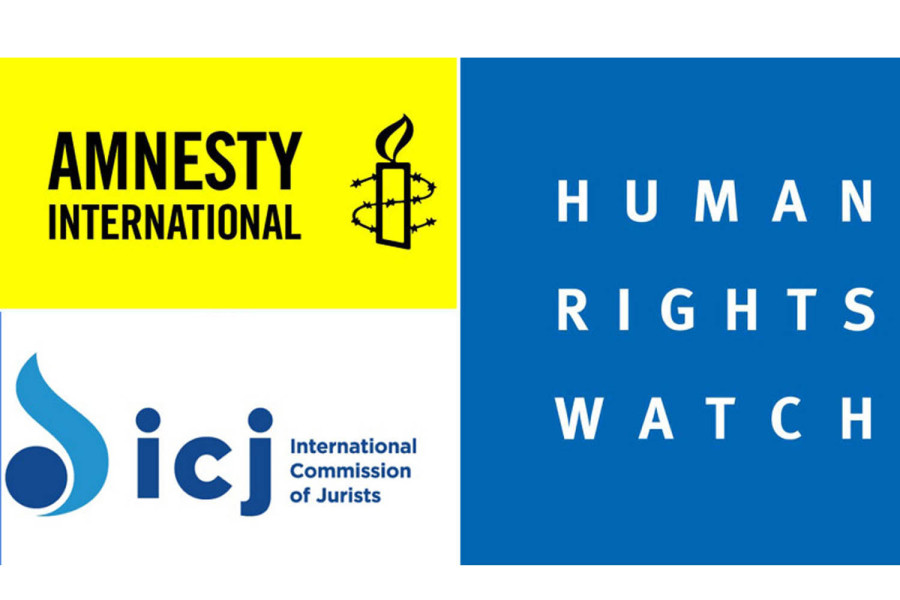National
International rights groups express concerns over appointment process in transitional justice bodies
Call for transparency, impartiality, and competence in the selection process.
Post Report
Amnesty International, Human Rights Watch, and the International Commission of Jurists have raised serious concerns over the process of appointing members to Nepal’s Truth and Reconciliation Commission and the Commission of Investigation on Enforced Disappeared Persons.
In a joint letter addressed to Prime Minister KP Sharma Oli, the organisations urged the government to prioritise transparency, impartiality, and competence in the selection of commissioners to ensure the credibility of the transitional justice process. They emphasised that the government must address long-standing concerns raised by conflict victims and civil society.
The appeal follows the Recommendation Committee’s inability to finalise its list of nominees within the two-month timeframe, which expired on December 16. The organisations noted that the committee’s earlier shortlist had sparked widespread criticism, particularly from victims’ groups, over the inclusion of individuals with “contentious reputations.”
In their statement, the rights organisations wrote, “The list appears to favour individuals with contentious reputations for key positions. This threatens the opportunity to meaningfully resolve transitional justice issues.” They added that the process should be “impartial, transparent, and competitive” and involve wider consultations with victims and excluded stakeholders.
The letter also cited a December 9 press release by two former members of Nepal’s National Human Rights Commission, a senior journalist, and a human rights advocate, who strongly objected to the shortlist. They had warned, “Neither commission will have credibility and cannot expect cooperation from the human rights and conflict victim communities if they are led by the shortlisted candidates.”
The joint letter emphasised that the transitional justice process must adhere to Nepal’s constitutional commitments, Supreme Court rulings, and international human rights obligations. “Competency, integrity, and public trust in the commissioners is essential for the commissions to deliver their important mandates as envisioned in the law,” the statement said.
The organisations further stressed that failure to appoint credible leadership could jeopardise the legitimacy of the commissions. They warned, “With two prior failed attempts at transitional justice, the risk of a third failure looms large. Such a failure could signal Nepal’s unwillingness or inability to ensure accountability for grave human rights violations including crimes under international law.”
The letter also called for the immediate formation of a new Recommendation Committee and urged the government to revisit its approach to address the concerns raised by victims, civil society, and international stakeholders.
“To advance truth, justice, and reparations within Nepal, we strongly urge the prime minister and all stakeholders to take decisive action to appoint and empower a new recommendation committee to complete the work of selecting commissioners,” the organisations wrote, adding that the process should include consultations to ensure the appointment of independent, impartial, and competent individuals.




 8.79°C Kathmandu
8.79°C Kathmandu














